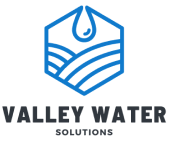UV Water Treatment: Everything You Need to Know – Clean, safe drinking water is a cornerstone of public health, and in today’s world, ensuring that your water is free from harmful microorganisms is more important than ever. One of the most efficient and environmentally friendly methods of disinfecting water is through Ultraviolet (UV) water treatment. This technology uses UV-C light to deactivate bacteria, viruses, and other pathogens by disrupting their DNA, preventing them from reproducing and causing illness. It’s a method that’s widely used across residential, commercial, and municipal systems due to its simplicity, reliability, and lack of harmful chemicals.
Unlike traditional water disinfection methods such as chlorination, UV water treatment does not alter the taste, smell, or chemical composition of your water. It’s safe, non-invasive, and remarkably effective—even against chlorine-resistant organisms like Giardia and Cryptosporidium. However, it’s important to understand that UV systems are most effective when used in conjunction with other filtration methods, as they do not remove solids, heavy metals, or chemicals.
This blog dives deep into everything you need to know about UV water treatment—how it works, its benefits and limitations, maintenance costs, and commonly asked questions. Whether you’re a homeowner or a business owner, this guide will help you determine if UV water treatment is the right solution for your water purification needs.
How UV Water Treatment Works?
UV water treatment utilizes ultraviolet light to disinfect water by inactivating microorganisms such as bacteria, viruses, and protozoa. The process involves exposing water to UV-C light, which penetrates the cells of pathogens and disrupts their DNA, rendering them incapable of reproduction and infection.
Key Components of a UV System:
- UV Lamp: Emits UV-C light to disinfect the water.
- Quartz Sleeve: Protects the UV lamp and allows UV light to pass through.
- Reactor Chamber: Where water flows and is exposed to UV light.
- Power Supply: Provides energy to the UV lamp.
- Sensor: Monitors the intensity of UV light to ensure effective disinfection.
UV systems are commonly used in both residential and commercial settings, including homes, aquariums, food processing facilities, and municipal water treatment plants.
Benefits of UV Water Treatment
1. Chemical-Free Disinfection
UV water treatment does not require the use of chemicals like chlorine or ozone, eliminating the risk of harmful byproducts such as trihalomethanes (THMs). This makes UV a safer and more environmentally friendly option for water disinfection.
2. Effective Against a Broad Range of Pathogens
UV systems are effective against a wide spectrum of microorganisms, including chlorine-resistant pathogens like Cryptosporidium and Giardia. This broad-spectrum efficacy makes UV treatment a reliable choice for ensuring microbiologically safe water.
3. Low Operating Costs
Once installed, UV systems are cost-effective to operate. They consume minimal electricity—approximately the same as a standard light bulb—and require only periodic replacement of the UV lamp and quartz sleeve.
4. Minimal Maintenance
UV systems have no moving parts, reducing the likelihood of mechanical failure and minimizing maintenance needs. Regular maintenance typically involves replacing the UV lamp annually and cleaning the quartz sleeve to maintain optimal performance.
5. Preservation of Water Quality
Unlike chemical disinfectants, UV treatment does not alter the taste, odor, or chemical composition of water. This ensures that the water remains palatable and retains its natural characteristics.
Limitations of UV Water Treatment
While UV water treatment offers numerous advantages, it is important to be aware of its limitations:
No Removal of Dissolved Solids: UV systems do not remove dissolved solids such as salts, heavy metals, or chemicals. For comprehensive purification, UV treatment is often used in conjunction with other filtration methods like reverse osmosis (RO).
Dependence on Water Clarity: UV effectiveness can be compromised if the water is turbid or contains suspended particles, as these can shield microorganisms from UV light. Pre-filtration may be necessary to ensure water clarity.
Electricity Requirement: UV systems require a continuous power supply to operate. In areas with unreliable electricity, this could be a concern.
No Residual Disinfection: UV treatment provides no residual disinfectant in the water, meaning that any contamination occurring after treatment will not be controlled.
Maintenance and Operating Costs
Maintaining a UV water treatment system is straightforward and cost-effective:
UV Lamp Replacement: Typically needs to be replaced annually, costing between $80 and $120.
Quartz Sleeve Cleaning or Replacement: The quartz sleeve should be cleaned regularly to prevent scaling. If damaged, replacement costs range from $40 to $60.
Annual Maintenance: Overall annual maintenance costs, including lamp and sleeve replacement, are estimated between $100 and $150.
These low maintenance costs make UV systems an economical choice for long-term water treatment.
Conclusion
UV water treatment stands out as a reliable, chemical-free, and environmentally friendly method for disinfecting water. Its effectiveness against a broad range of pathogens, coupled with low operating costs and minimal maintenance, makes it an attractive option for ensuring safe drinking water.
Frequently Asked Questions (FAQs)
Q1: Can UV water treatment remove chlorine from water?
A1: No, UV treatment does not remove chlorine or other chemicals from water. It is effective only against microorganisms.
Q2: How long does a UV lamp last?
A2: A UV lamp typically lasts between 9,000 and 12,000 hours of operation, equating to about one year of continuous use.
Q3: Is UV water treatment safe for drinking water?
A3: Yes, UV water treatment is safe for drinking water when properly maintained and used in conjunction with other filtration methods if necessary.
Q4: Can UV systems be used for well water?
A4: Yes, UV systems are effective for well water. But pre-filtration may be required to remove particulates and ensure water clarity.
Q5: Are UV systems suitable for large-scale applications?
A5: Yes, UV systems are scalable and can be designed for residential, commercial, and municipal applications, providing effective disinfection for varying water volumes.

